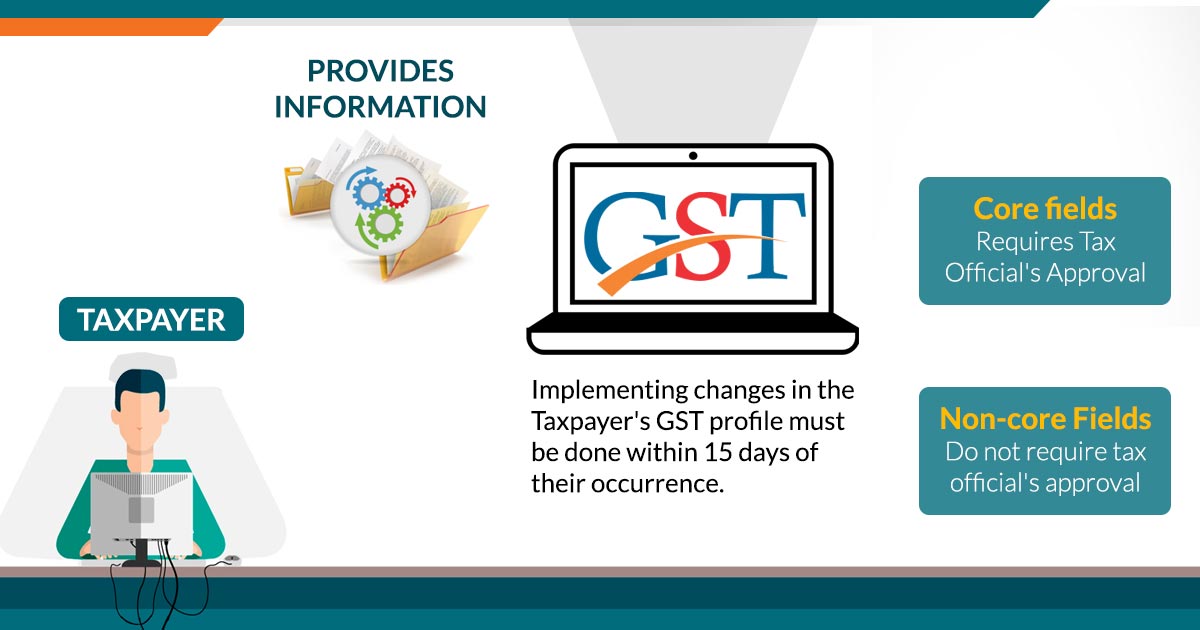Simplifying Your Singapore GST Registration: A Thorough Strategy
Simplifying Your Singapore GST Registration: A Thorough Strategy
Blog Article
The Ultimate Guide to Streamlining the GST Registration Process and Demands for Small Organization Owners

Comprehending GST Essentials
To realize the basics of the Product and Provider Tax Obligation (GST) system, little organization owners have to first understand its underlying principles and effects. GST is a value-added tax imposed on many goods and services for domestic intake. It intends to improve the taxes process by changing multiple indirect taxes imposed by the state and central governments. Under the GST routine, organizations are required to gather and register tax obligation in behalf of the government, ensuring openness and conformity.
One of the crucial principles of GST is input tax obligation credit history, which enables businesses to claim credit history for taxes paid on their acquisitions. This mechanism protects against the cascading result of tax obligations and promotes performance in the tax obligation system. Additionally, GST is a destination-based tax obligation, suggesting that the tax is levied at the point of usage as opposed to the factor of beginning. This ensures fair circulation of tax obligation profits amongst states based upon where the solutions or items are eaten. Understanding these fundamental principles is essential for small company proprietors to browse the complexities of the GST system and make certain compliance with the regulation.
Qualification Standards for Registration
Having actually developed a fundamental understanding of GST principles, local business owners should now satisfy details eligibility requirements to wage the registration procedure. In India, entities participated in the supply of items or solutions with a yearly accumulation turnover surpassing Rs. 40 lakhs (Rs. 10 lakhs for special classification states) are called for to sign up for GST. Furthermore, particular companies such as those entailed in inter-state supply of products, laid-back taxed persons, and those called for to pay tax obligation under the reverse cost mechanism have to sign up for GST regardless of their turn over. Moreover, companies that were registered under the previous tax regimen (VAT, solution tax, and so on) are additionally mandated to sign up under GST. However, farming organizations that just supply generate out of main manufacturing are exempt from GST registration. It is essential for business proprietors to carefully examine their eligibility based upon these criteria to make certain compliance with the law and avoid any type of penalties for non-compliance.
Records Needed for GST Registration

Simplified Registration Refine Steps
Complying with the collection and confirmation of the requisite files, the registration process for GST can be browsed with a series of streamlined this steps made to assist in effective compliance for little company proprietors. Upon successful verification, an Application Reference Number (ARN) is released, indicating the completion of the GST registration procedure. By adhering to these simplified actions, small company owners can properly sign up for GST and make sure conformity with tax guidelines.
Tips for Ensuring Compliance
To maintain regulative adherence and functional honesty, diligent oversight and proactive steps are critical in making certain conformity with GST requirements for small company proprietors. Small company owners need to remain updated with GST policies, filing deadlines, and any modifications in tax rates to avoid penalties and maintain a great standing with tax authorities. Going to GST understanding workshops or training programs can enhance understanding and compliance with GST regulations, ultimately profiting the organization in the lengthy run.
Final Thought
In conclusion, small company owners must recognize the essentials of GST, satisfy the eligibility requirements, collect essential documents, and adhere to the streamlined registration process actions to make sure compliance. By streamlining the GST enrollment procedure and requirements, local business proprietors can avoid charges and operate their companies efficiently within the legal framework - Singapore GST Registration. It is important for local business owners to remain compliant and enlightened with GST guidelines to maintain an effective company operation
Little company owners seeking GST enrollment must guarantee they gather and send the required documents to finish the registration procedure efficiently. The records required for GST enrollment usually include proof of business registration or unification, PAN (Permanent Account Number) card of the service address, identification and entity proof of the promoters/partners/directors, photos, address evidence of the place of organization, bank account declarations or terminated cheques, and authorization kinds. Attending GST understanding workshops or training programs can boost understanding and compliance with GST policies, inevitably benefiting the organization in the long run.
By simplifying the GST enrollment procedure and requirements, little service proprietors can avoid charges and run their organizations smoothly within the legal structure. It is critical for small company proprietors to remain compliant and educated with GST here are the findings laws to maintain a successful company operation.
Report this page